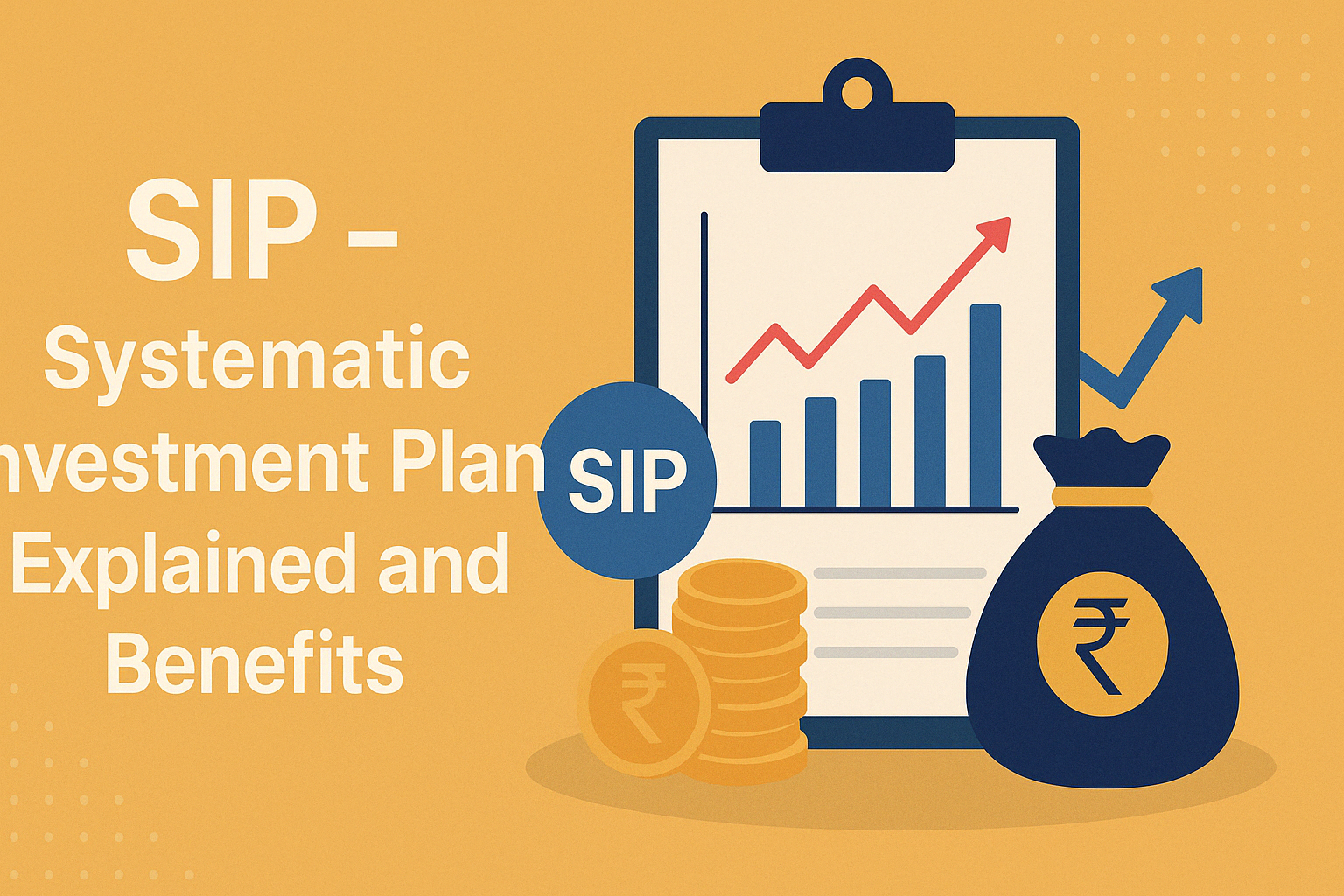Benefits and Types of Equity Funds in India

If you’re looking to grow your wealth faster than traditional savings options, it’s time to understand the Types of Equity Funds in India. These investment vehicles have become a favorite among retail investors seeking long-term capital appreciation. But what exactly are equity funds? What are the benefits? And most importantly, what Types of Equity Funds should you consider?
At How Upscale, we’ll explore everything you need to know about equity funds—from their advantages to a detailed breakdown of the various types available in India.
What are Equity Funds?
Equity funds are mutual fund schemes that primarily invest in shares or equities of companies listed on the stock exchanges. The primary goal is to generate capital appreciation over the long term. These funds are managed by professional fund managers who strategically pick stocks across sectors, market capitalizations, and themes to help maximize returns.
When you invest in equity funds, you’re essentially buying into a portfolio of stocks—giving you exposure to the equity market without needing to pick and manage stocks yourself.
Why Should You Consider Equity Funds?
Before diving into the different Types of Equity Funds, let’s talk about their benefits. Why are equity funds so popular in India, especially among new-age investors?
1. Professional Management
One of the major benefits of investing in equity funds is access to professional fund managers. These experts analyze markets, conduct research, and actively manage the portfolio to deliver returns.
2. Diversification
Equity funds invest in a variety of stocks across industries and sectors. This diversification reduces the impact of poor performance by any single stock or sector, thereby lowering the risk.
3. Affordability through SIPs
You don’t need a huge capital to start. With Systematic Investment Plans (SIPs), you can begin your investment journey with as little as ₹500 per month.
4. High Return Potential
Compared to fixed-income instruments like FDs or PPFs, equity funds offer a higher return potential, especially over the long term.
5. Tax Efficiency
Under the Indian tax laws, long-term capital gains (LTCG) up to ₹1 lakh per year from equity funds are tax-free. Even after that, the tax rate is a moderate 10%, which is significantly lower than many other investment avenues.
6. Liquidity
Equity funds are highly liquid, especially open-ended ones. You can redeem them anytime, making them a flexible investment option.
Key Factors to Consider Before Investing
Before you jump into different Types of Equity Funds, consider these important factors:
- Your Risk Appetite: Equity funds can be volatile in the short term. Know your ability to handle market fluctuations.
- Investment Horizon: These funds are best suited for long-term goals (5+ years).
- Fund Objective: Check if the fund’s goal aligns with your financial objective.
- Expense Ratio: Lower expense ratios typically result in higher net returns.
- Performance Track Record: Analyze historical performance but remember, past performance is not indicative of future returns.
Types of Equity Funds in India
Now, let’s delve into the heart of the topic: the various Types of Equity Funds available in the Indian mutual fund space.
1. Large-Cap Equity Funds
These funds invest in companies with large market capitalizations—typically the top 100 companies listed on the stock exchange (as per SEBI guidelines).
Benefits:
- Relatively stable
- Lower volatility compared to mid and small-cap funds
- Suitable for conservative equity investors
Ideal for: First-time investors or those with a lower risk appetite.
2. Mid-Cap Equity Funds
Mid-cap funds invest in companies ranked between 101st and 250th in market capitalization.
Benefits:
- Higher return potential than large-cap funds
- Good balance between risk and return
Ideal for: Investors with moderate risk tolerance and a medium to long-term horizon.
3. Small-Cap Equity Funds
These funds invest in companies ranked beyond the 250th mark in terms of market capitalization.
Benefits:
- Tremendous growth potential
- Can outperform other equity fund categories in bullish markets
Risks:
- Highly volatile
- Less predictable performance
Ideal for: Aggressive investors with high-risk appetite and a long investment horizon.
4. Multi-Cap Funds
Multi-cap funds invest across large-cap, mid-cap, and small-cap stocks. SEBI mandates that these funds must allocate at least 25% to each of the three categories.
Benefits:
- Diversified exposure
- Flexibility to manage risk and seize growth opportunities
Ideal for: Investors looking for a diversified portfolio within a single fund.
5. Flexi-Cap Funds
Unlike multi-cap funds, flexi-cap funds do not have fixed allocation rules and can invest freely across market capitalizations.
Benefits:
- Maximum flexibility for fund managers
- Ability to adjust allocation based on market conditions
Ideal for: Investors who trust fund managers to make allocation decisions.
6. Sectoral and Thematic Funds
These equity funds invest in specific sectors (e.g., IT, pharma, banking) or themes (e.g., ESG, digital economy).
Benefits:
- High return potential when the chosen sector/theme performs well
Risks:
- Lack of diversification
- High volatility
Ideal for: Experienced investors with high conviction in specific sectors/themes.
7. ELSS (Equity Linked Saving Scheme)
These are tax-saving equity funds under Section 80C of the Income Tax Act, 1961. They come with a 3-year lock-in period.
Benefits:
- Dual advantage of wealth creation and tax savings
- Lowest lock-in among all tax-saving instruments
Ideal for: Taxpayers looking to reduce liability while building wealth.
8. Value Funds
Value funds follow a strategy of investing in undervalued stocks that have strong fundamentals but are currently trading below their intrinsic value.
Benefits:
- Potential to deliver strong returns when undervalued stocks realize their true value
Ideal for: Investors with a patient, long-term approach.
9. Contra Funds
These funds follow a contrarian strategy by investing in sectors or stocks that are currently out of favor but are expected to bounce back.
Benefits:
- Opportunities for strong long-term returns
- Ideal for uncertain or volatile markets
Ideal for: Contrarian investors who believe in long-term market cycles.
10. Dividend Yield Funds
These equity funds invest in stocks that pay regular and high dividends.
Benefits:
- Regular income plus potential capital appreciation
Ideal for: Conservative investors looking for income and moderate growth.
How to Choose Among the Types of Equity Funds?
Selecting the right fund among the various Types of Equity Funds depends on your individual financial goals and risk tolerance. Here’s a quick guide:
| Financial Goal | Risk Level | Recommended Fund Type |
| Wealth Creation | Moderate | Multi-Cap or Flexi-Cap Funds |
| Tax Saving | Moderate | ELSS |
| Aggressive Growth | High | Small-Cap or Thematic Funds |
| Stability + Growth | Low | Large-Cap or Dividend Yield Funds |
| Sector-Specific Bet | High | Sectoral/Thematic Funds |
Common Myths About Equity Funds
While the popularity of equity mutual funds has surged, many investors still fall prey to common misconceptions:
❌ Myth 1: Equity Funds are Only for Experts
✅ Reality: Thanks to SIPs and fund managers, even beginners can invest.
❌ Myth 2: All Equity Funds Are High Risk
✅ Reality: There are different Types of Equity Funds to match various risk profiles.
❌ Myth 3: You Need a Lot of Money
✅ Reality: Start with just ₹500 via SIP and build wealth gradually.
Are Equity Funds the Right Choice for You?
India’s mutual fund industry is growing at a record pace—and equity funds are leading the charge. With diverse Types of Equity Funds, investors now have the flexibility to align their portfolios with specific goals, timelines, and risk tolerances.
Whether you’re a salaried employee planning for retirement, a young professional saving for a home, or a parent investing for your child’s future—there’s an equity fund for you.
So, take that first step today. Choose the right type of equity fund, set your investment goals, and let the power of compounding work in your favor.
Frequently Asked Questions (FAQs)
Q1. What are the main Types of Equity Funds in India?
Large-cap, mid-cap, small-cap, multi-cap, flexi-cap, sectoral/thematic, ELSS, value, contra, and dividend yield funds.
Q2. Which type of equity fund is best for beginners?
Large-cap or ELSS funds are ideal for beginners due to their relative stability.
Q3. Is there any lock-in period in equity mutual funds?
Only ELSS funds have a lock-in of 3 years. Others are open-ended and can be redeemed anytime.
Q4. Can I invest in multiple types of equity funds?
Absolutely! In fact, diversifying across different Types of Equity Funds can help you manage risk better.
Q5. Are equity funds safe?
They carry market risks but are safer than direct stock investments due to diversification and professional management.










